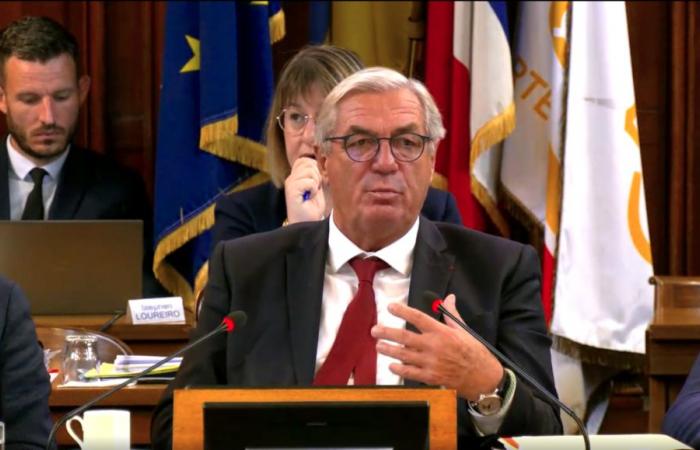From the start of his speech, François Sauvadet firmly underlined the distinct role of departments in the face of the new budgetary constraints imposed by the State. He expressed his support for the victims of Valencia, mentioning “ a deadly drama from which we must learn lessons to prevent other climate disasters » and calling for the relaunch of the Beauvau of civil security to strengthen the means of financing SDIS. “ We cannot do more to finance our SDIS “, he insisted.
As part of the draft Finance Law, the president stressed that “everyone will have to make efforts in the difficult situation due to the fact that the State has increased the public debt.” He insisted on everyone's responsibility.
An unsustainable deficit for the departments
The context is difficult particularly for Departments which are exposed to “ an explosion in social charges in a context of imposed expenses without compensation “. The social share in the budget increased from 56% to 70% while resources fell “ we no longer have any room for maneuver by no longer having recourse to property tax, the compensation is not enough “. For the Côte-d'Or department, we see a loss of 35 million euros while social spending reaches 70 million euros. “ The cumulative deficit thus reaches 100 million euros out of a total budget of 600 million euros. However, the government is asking us to help fill a national deficit of 5 billion euros, a burden that is not our responsibility. This is all the more incomprehensible as the departments, although particularly vulnerable, are required to bear 44% of this debt, or 2.2 billion euros. This specifically impacts communities with a budget greater than 40 million euros, which concerns around 450 of them. »
For the Côte-d'Or, this contribution to the recovery of the State debt represents 21 million euros. “ It becomes unbearable; 80% of departments risk being seriously affected. We could quickly no longer be able to finance our public policies. »
Tomorrow, François Sauvadet will meet the Prime Minister, hoping to “explain to him that the scissor effect is becoming unbearable and that we will have to make choices”. For him, this situation “irequires everyone – State and elected parliamentarians – to take responsibility ».
Optimize management and increase efficiency
François Sauvadet wanted to point out that the department did not wait for this crisis to take efficiency measures. He set out two “red lines” that he refuses to cross: maintaining territorial presence and retaining skills adapted to current challenges. “ We will not abandon our neighborhoods and our rural territories “, he said.
To respond to budgetary challenges and increase efficiency, an initial deliberation was taken concerning the reorganization of services. The president wishes to further mobilize digital resources, particularly for the management of roads, fluids and real estate assets. A new “Data and AI” administrative center will be created, including cybersecurity and the fight against electronicism. The establishment of a new data center in Beaune, planned for June 2025, will guarantee the security of the department's data.
At the same time, the management of all assets will be centralized in order to prioritize interventions, particularly to achieve energy savings. The department's agents will soon be grouped together in the Osmose Territorial Campus, an ecological building which will save 30% in energy and €400,000 in rent per year.
Opposition reactions
Opposition elected officials provided varied perspectives on the president's announcements. Patrick Audard, departmental councilor of Chenôve, declared supporting the position of François Sauvadet, affirming that “ the department must not compensate for the debt attributable to the State and must remain attentive to its missions of solidarity and regional planning ».
However, he expressed concerns about the reorganization of services, which he said creates “an anxiety-provoking climate” created by the reorganization of services. Recalling the unfavorable vote of a union, he questioned the quality of social dialogue. In response, François Sauvadet replied that “ only one trade union organization voted against » and that the dialogue is permanent.
Catherine Hervieu, departmental councilor for the Dijon-3 canton, insisted on the need to review taxation to provide resources to communities. “ A project to reopen to find resources for communities and the department with the notion of citizenship for services that are not free “, she declared, calling for a contradictory and democratic debate on future budgetary choices.
« Public money must go to those who need it most. » President Sauvadet concluded by announcing the preparation of the Budgetary Orientation Debate, recalling that the department will continue its support for the most vulnerable despite the constraints.
Jeannette Monarchi
Next meetings on November 25 for the presentation of the Budget Orientation Report and December 16 and 17 for the budget session.






